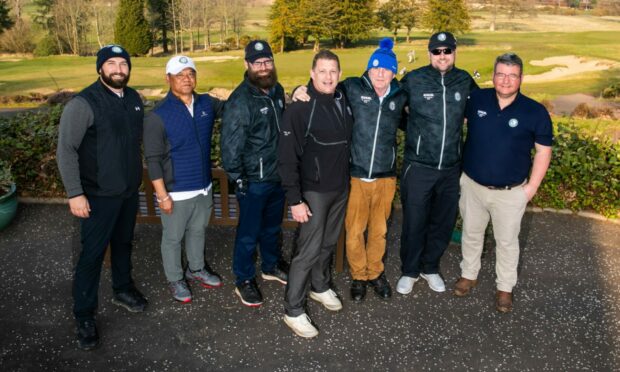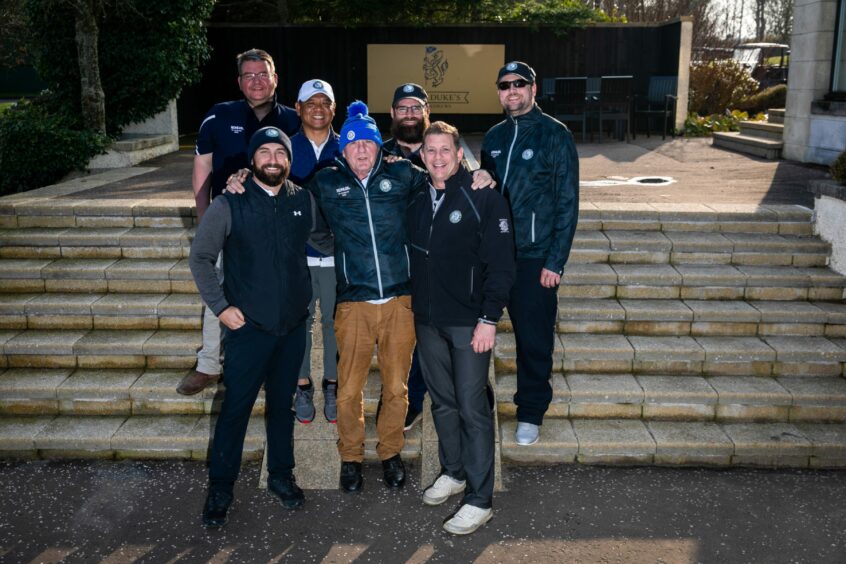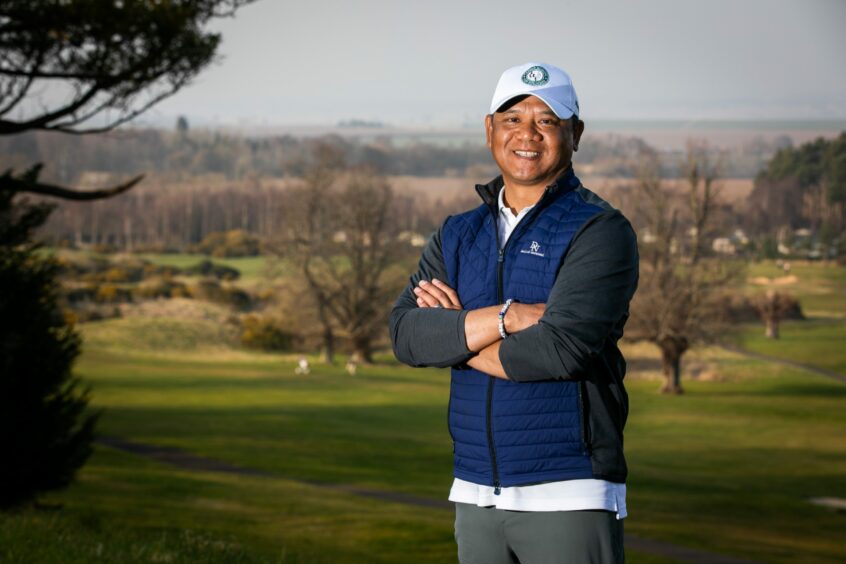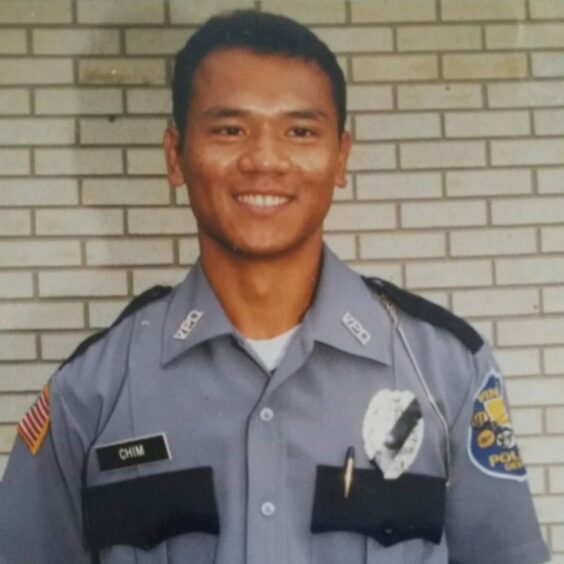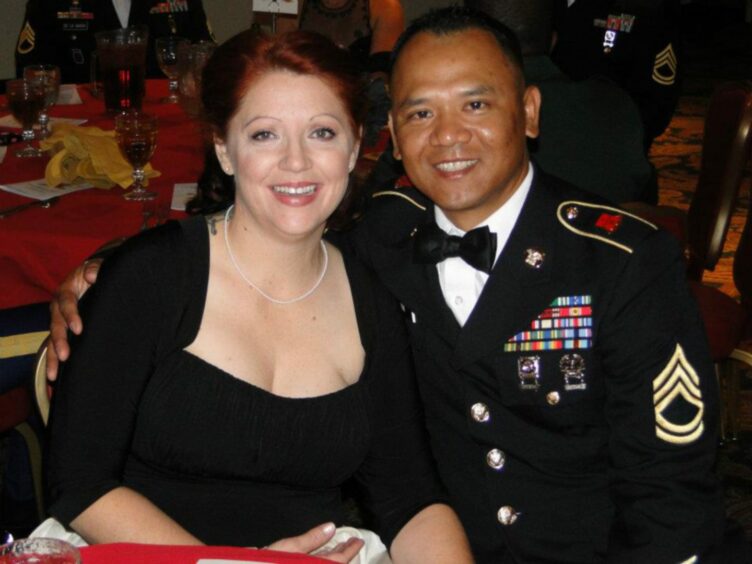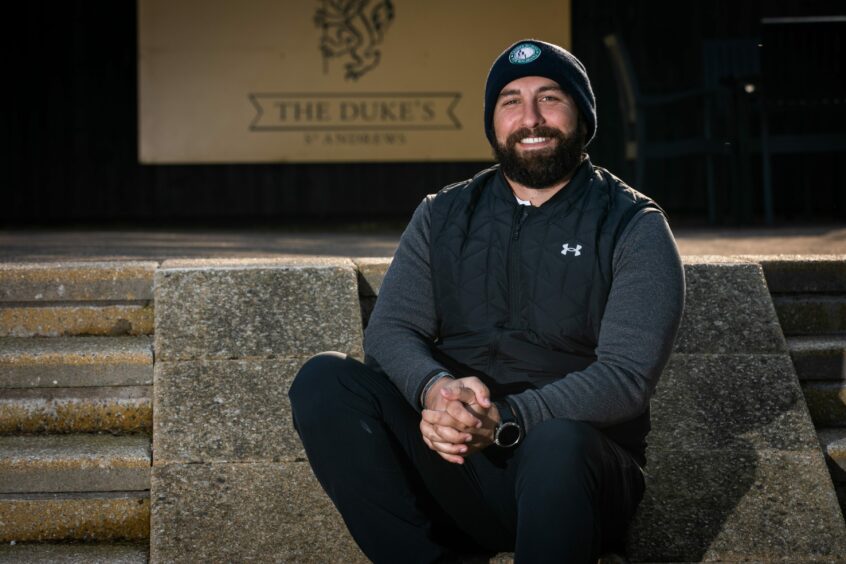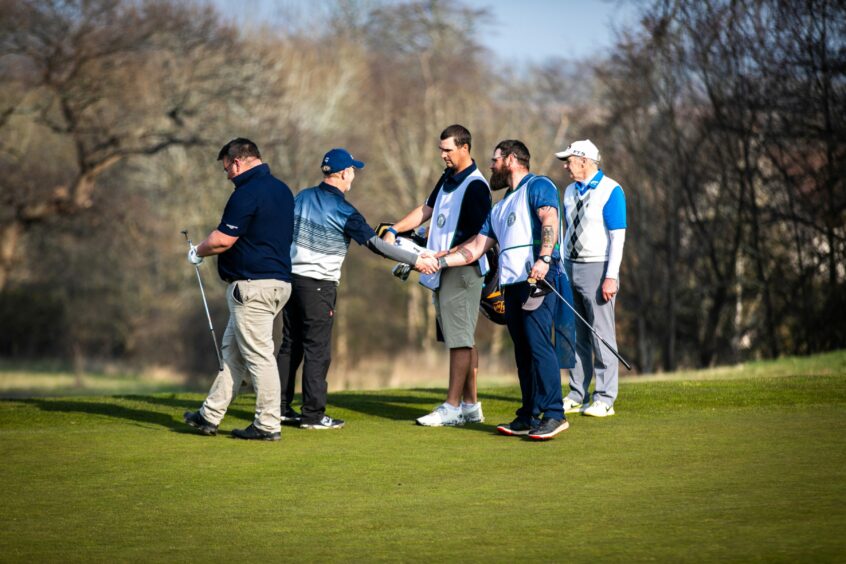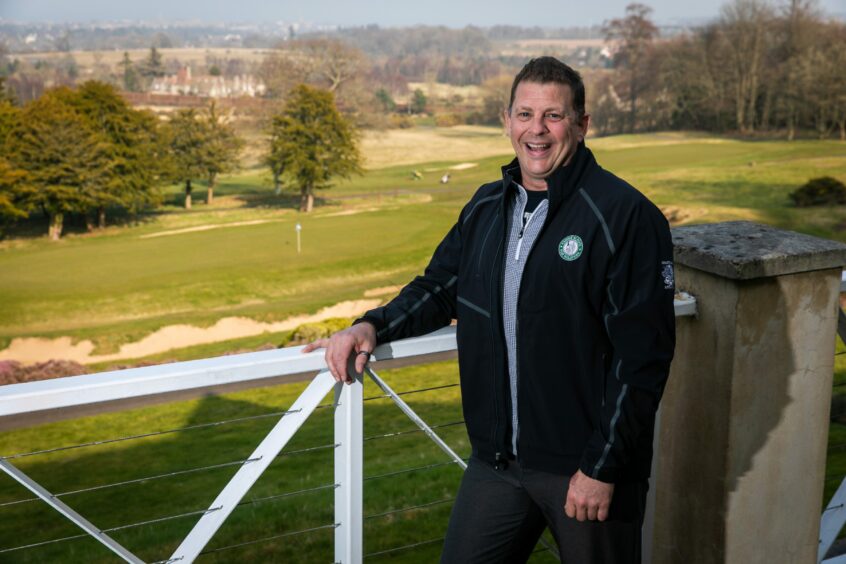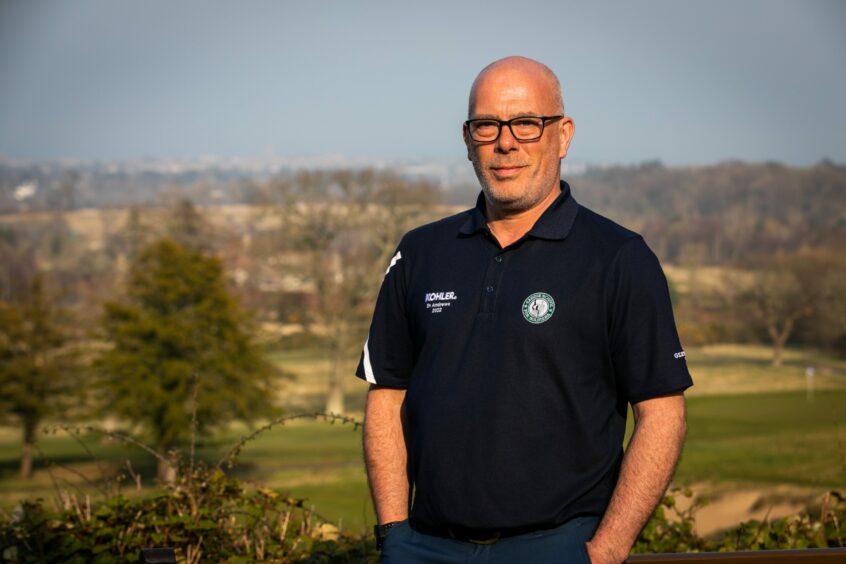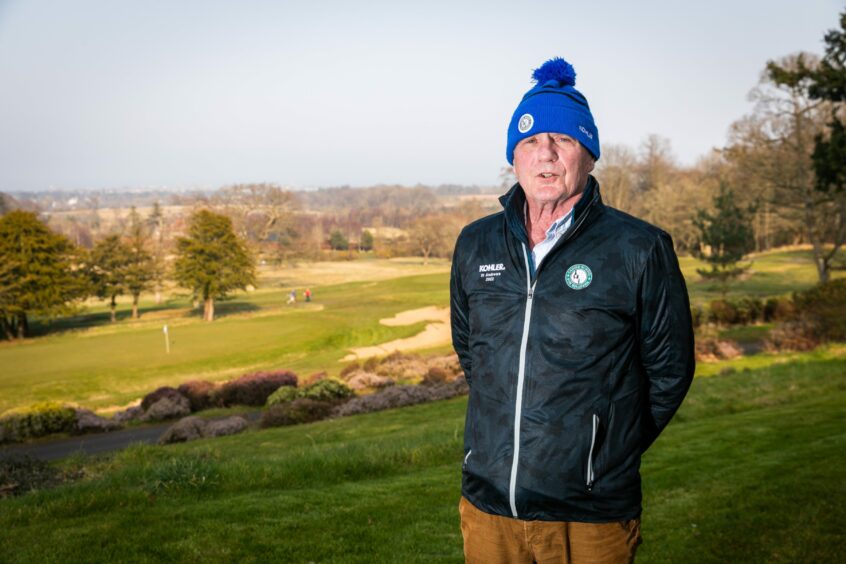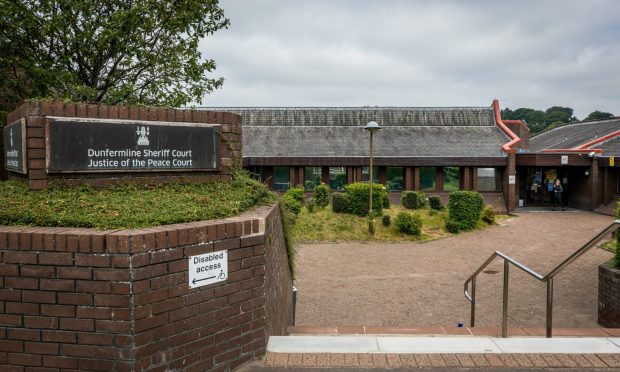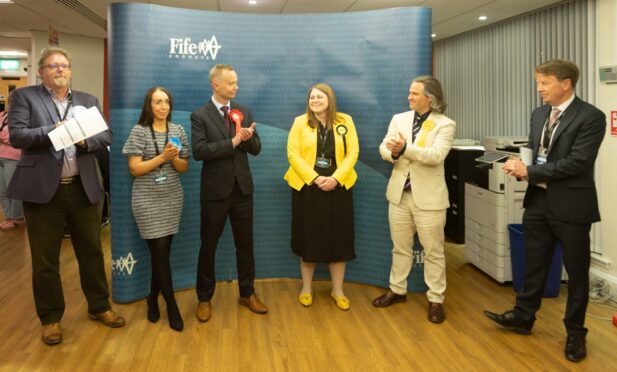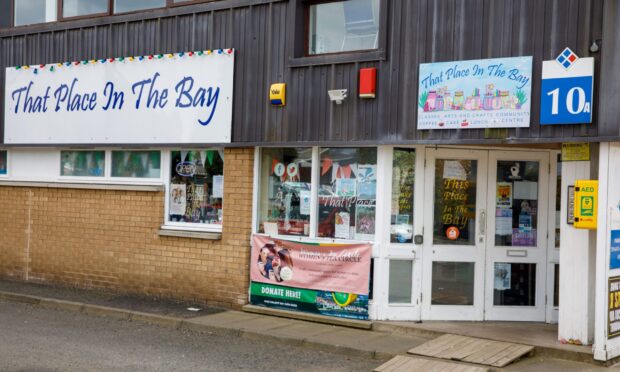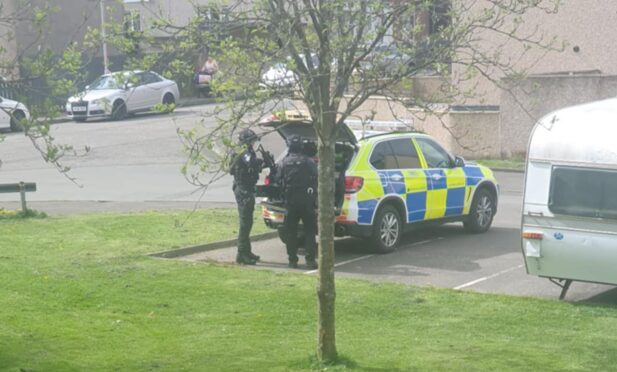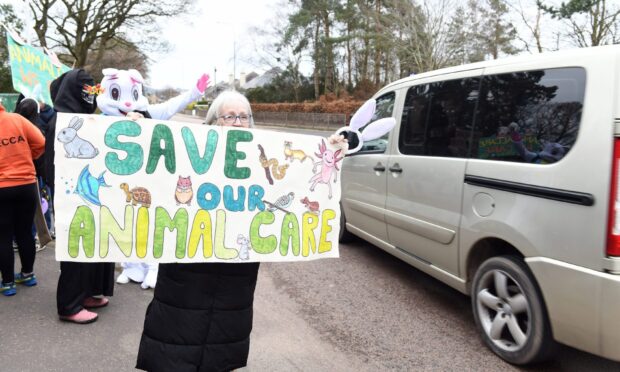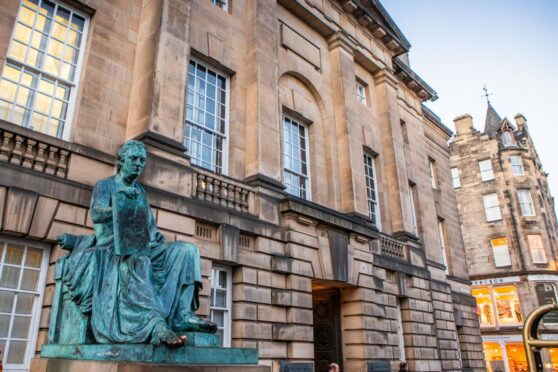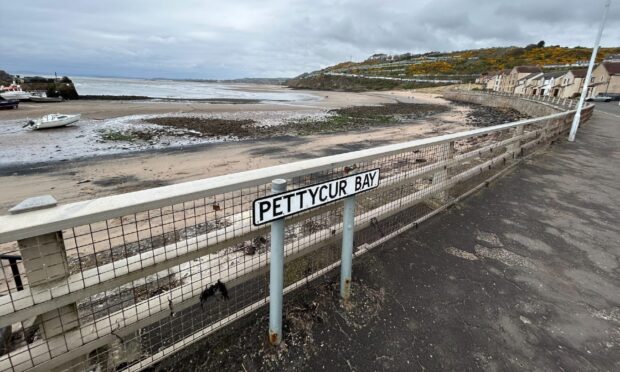The world’s first residential caddie school for traumatised ex-soldiers has returned to St Andrews. Michael Alexander meets participants and hears how it’s helping them step from the darkness back into the light.
With spring sunshine on their backs and gentle birdsong filling the air, the genteel views towards St Andrews feel a million miles from the killing fields of Cambodia or the traumas of war in Iraq and Afghanistan.
However, for traumatised ex-soldiers taking part in the fourth session of The Caddie School for Soldiers, at the Duke’s Course near St Andrews, it’s the perfect setting to help these troubled souls rise up from the desolation of the wars they fought and restore their essential belief in themselves.
The Courier has followed the Caddie School since it was first established by American screenwriter Don Snyder in 2019.
The organization’s goal isn’t necessarily to help veterans become caddies—though many graduates have gone on to rewarding careers as professional bag carriers.
Instead, the aim is to help veterans discover that a meaningful and positive future is possible after military service in whatever new field they may choose to pursue.
After navigating the challenges of Covid-19, Don was finally able to return to Fife with six new ex-soldiers at the start of March.
And as this season’s month-long session drew to a close, The Courier was invited along to have an exclusive chat with some of those taking part.
Cambodian holocaust survivor
Amongst those sharing their stories was 49-year-old Cambodian holocaust survivor Bruce Chim.
Cool, calm and collected, the Iraq War veteran, who is on the road to recovery after a suicide attempt last year, revealed he’s never spoken before about a lifetime of troubling experiences.
However, the keen golfer, who admits he’s had a “rough time” since leaving the military in 2019, is so grateful to have been given the opportunity to take part in the programme, which gives him new self-belief and hope.
“There’s a lot of things I saw as a child that I try not to talk about because it’s so horrific,” explains Bruce.
“Some of the movies like The Killing Fields and First They Killed My Father, are pretty accurate.
“But they don’t show the most gruesome part of Pol Pot’s Khmer Rouge regime where mums and dads, aunts and uncles would be killed with machetes and baseball bats. They’d be screaming and screaming and left while not even dead.
“I witnessed this genocide age six. If they’d captured me I’d have been brainwashed to think that was ok.
“But when I was six I escaped the Cambodian holocaust with my seven year old brother and my youngest aunt.
“In 1978, we walked 300 miles through the most heavily mined fields and the most treacherous jungle in the world in order to get to the safety of a refugee camp called Camp Kow-a-Dang in Thailand.
“I went through many series of interviews and screening and finally made it to the US in 1983 with the help of my uncle Thon who fought on the US side in the Vietnam War.”
Grateful to the country that “saved” him, in his junior high school year, he joined the Minnesota National Guard in May 1991 and in February of 1993 he joined the US Army, A 3-82 FA at Fort Hood, Texas.
His unit was activated to fight forest fires in Montana in 1995.
In 1996 he left and got a job in Vinton, Louisiana as a police officer.
However, on September 11, 2001, as he watched the second hijacked aircraft hit the World Trade Center, he was inspired to join the Army B-3EN BN at Fort Riley, Kansas.
Bruce deployed to Iraq from August 2003 to September 2004 with 79 soldiers.
However, he only returned home with 68.
A particular incident that affected him greatly was the loss of his Battery Commander, 1st Sergeant, Platoon Sergeant, Mechanic Sergeant in an IED.
It was a mission Bruce was supposed to be on but he was pulled off at the last minute by his commander to do something else.
“The platoon sergeant who volunteered to take my place was supposed to go to R&R to see his new-born the next day but never made it,” he says.
Bruce felt guilty about this for a long time.
When he retired from the army in 2019 he felt “useless” and couldn’t adapt to the civilian world. He’d take out his anger on his wife and kids and on occasions “just wanted to end it all”.
After time in a psychiatric unit last year, however, he’s learned to accept things that happened and now spends time on the golf course to help with his depression.
He also loves rescuing animals and unwanted dogs.
He describes his wife Adra of 11 years as his “biggest supporter” and the love of his life.
He also thanks Eric Hatch, who put him in touch with Don Snyder and Caddie School for Soldiers, as a “God send”.
Since December, Bruce and his wife have also been supported by a Christian counselling service which helps him greatly.
From caddie to mentor
Others on the Caddie School course include Connecticut-born Michael Pappas, 31, a former US Army Ranger who went through the programme in Whistling Straits last year and is now one of the Caddie School mentors.
After four combat tours (one in Iraq and three in Afghanistan), he was medically retired from the military in January after 13 years.
Having lost his best friend in a freefall training incident, and after years of adrenalin-based training and combat, the physical and psychological trauma of war have taken their toll.
“I would say I’ve always been very good at hiding the emotional factors of what I’ve been through,” he says, “but I think it finally took a toll on me after 13 years.
“I was so afraid to talk to somebody because I was so afraid of being put ‘on the bench’ so to speak.
“You wanted to be relied on, to deploy, to fight and all that. You kind of bottle that stuff up and then you get to the end, it’s like ‘hey you’ve got issues going on, I’ve never even talked to anyone’. It’s a bit like dumping a bag of trash on their desk.”
Michael reckons he’s in a better state now than many because he was “caught at a good time”.
However, he knows of other ex-military who may have slipped through the net or not been caught in time.
There definitely needs to be greater support for ex-military in general, he says, and while it’s “getting a lot better”, there’s definitely work still needing to be done.
Brain injury
Former Royal Canadian Regiment soldier Sean Sutherland, 47, who deployed around the world 14 times including Bosnia and Afghanistan, and worked for NATO, is also working as a mentor.
The grandson of a Black Watch soldier, whose father was also in the military based in Baden, Germany, Sean sustained a brain injury from repeated blast concussions which “doesn’t help him think straight”.
The former armed combat teacher came out of the military with a “lot of animosity, angst and anger” which he often took out on his family.
However, while he’s still recovering every day, the qualified engineer, who now runs a carpentry business back home in Ontario, has found that golf and the caddie training he did with the school at Whistling Straits last year, helps him greatly.
“When you get out there as a caddie, you look at every golfer as a challenge,” he says.
“You have to introduce yourself, start a conversation and continue for four hours. You don’t really have a choice. Do that enough times and eventually you’ll fall out of your shell.
“The best thing they’ll get is communication skills and people not looking at us as garbage but saying ‘thankyou’.
“Maybe something will resonate inside them –they can go grocery shopping again instead of not leaving the house for three days.”
‘Became too much’
Paul Bonny, 54, was born in Liverpool and joined the Royal Military Police in January 1988.
He served for 14 years spending six of those in Northern Ireland, with postings to Germany, Falkland Islands and short-term emergency operational deployments across the world.
His last operational deployment was in Kosovo in 1999.
However after dealing with 24 murder scenes in 34 days, it “all became too much” and, in 2001, he was diagnosed with PTSD and decided that a change in career was needed.
He left military service and joined the Police Service of Northern Ireland in 2002 serving another 15 years.
However, he was medically retired after suffering two strokes in a 12-month period and being diagnosed with fused vertebrae.
Paul now lives in Northern Ireland and since retirement in 2017 has worked as a seasonal greenkeeper at Galgorm Castle Golf Club working on European tour events including The Northern Ireland Open and the Dubai Duty Free Irish Open.
Having been away with the On Course Foundation, friends recommended he apply for the Caddie School for Soldiers to further aid his recovery and be around like minded people.
Hopes for permanent base
Don Snyder says it “feels like a privilege” to have made it to their fourth session in four years.
Thanks to previous participants helping as mentors this was the “strongest session yet” and they were now over-subscribed.
The ambition remains to establish a permanent base in Scotland.
